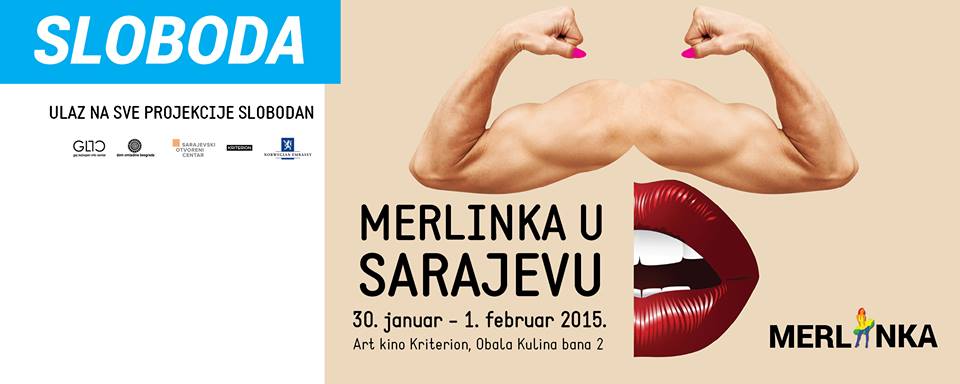
Chloé Gaillard speaks with Jasenko, organizer and activist of the 2015 international movie festival Merlinka, about the situation of the Lesbian-Gay-Bi-Trans (LGBT) community in Bosnia-Herzegovina (BiH).
Merlinka is an international queer movie festival, organized for the first time in Belgrade in 2008 by the Gay and Lesbian Info Center (GLIT). Created as a tribute to Vjeran Miladinović, a trans person killed in Belgrade in 2003 and known under his drag name “Merlinka,” the festival rapidly grew to become a major event for the LGBT community in the Balkans.
In 2012, Merlinka was organized in Sarajevo for the first time. After a promising start, the festival sadly made headlines in 2014. Held in the Art Cinema Kriterion in Sarajevo, last year’s event was attacked by a group of masked men during a panel discussion about trans-identity and trans-rights.
“The festival received few homophobic articles prior to being held, from marginalized fascist news portals. It was enough for the hooligans to react. In addition, the satirical website, Sarajevo 365, wrote an article saying that a gay pride was going to be held in Sarajevo. I think this misinformation led to what happened” explained Jasenko.
The attackers should have been stopped but the police, in charge of the security due to the high risk still surrounding LGBT related events in BiH, were late that day.
“Police officers were supposed to be there at three o’clock but they arrived 20 minutes later which was enough time for the attackers to do what they did. They have been reported to the police but nothing really happened… we are still waiting.”
The three-day long 2015 edition of the festival went uninterrupted, enabling participants to enjoy the selection of five movies, all focusing on different issues such as same-sex marriage, parenthood, sex change and transition.
“This year, we had more than 300 people on the opening night. People had no place to sit. The movie theatre was full. We are really satisfied with how it went. I think people got used to the fact that it’s going to happen every year,” Jasenko said, adding that he still wonders: “Maybe it was just because of the security?”
Indeed, this year the security of the event was a major preoccupation. Private security, police officers in the street and in front of the Art Cinema Kriterion, plainclothes unit… A massive security service was deployed to ensure the security of participants. “SOC was and is still working with the police to educate, train and sensitize them to LGBT issues such as hate crimes or discrimination. It had a lot of impact and this year they were perfectly professional.”
To see such a very public event, taking place without any problems or threats, brings new hope to the Bosnian LGBT community. “The year 2014 was a good year and a big step for Bosnia. Sarajevo definitely contributed to this beginning of shift of mentalities. It’s encouraging for any next project. Whatever that is, it is really great that it is happening.”
Now, Jasenko wants to focus more on other cities. Originally from Tuzla, a city that gave him “the freedom and strength to be out,” he is now living in Banja Luka, a city in Republika Srpska, one of the two entities constituting Bosnia.
“When it comes to Banja Luka, I can’t say that there is a shift there. Unlike Sarajevo, which had SOC for 4 years, we have to go all the way from the beginning. It’s really hard to organize anything because the community there is really afraid to come out. We have to work on strengthening the community. So far, we got good responses from institutions. They are not really sensitized yet, but it’s already promising.”
His organization, named Banja Luka Association of Queer Activists, finally found a space to work and plan on organizing different educational activities; forming a book club to get people interested in reading queer literature and starting a project with a local radio station to have an LGBT talkshow once a month. Furthermore, Jasenko plans to organize Merlinka in his city next year.
“I have been an activist for 11 years and I have been waiting for something to happen. I think that something is changing and we have to use this opportunity to push it as much as we can. I am really optimistic.”






